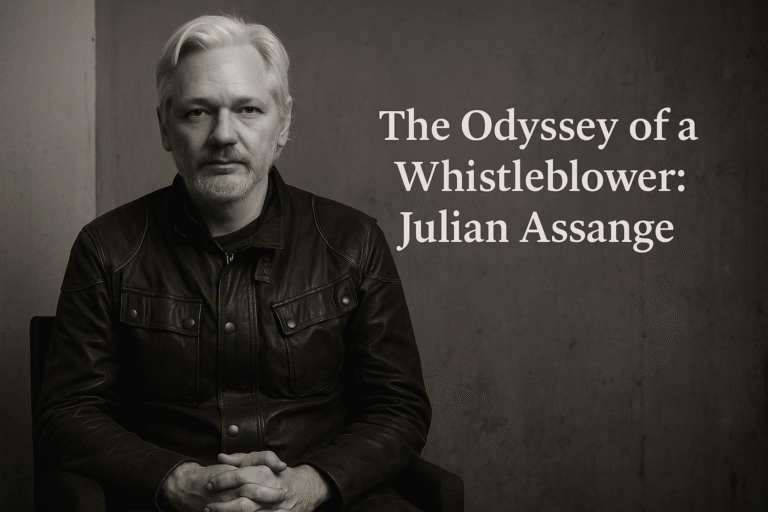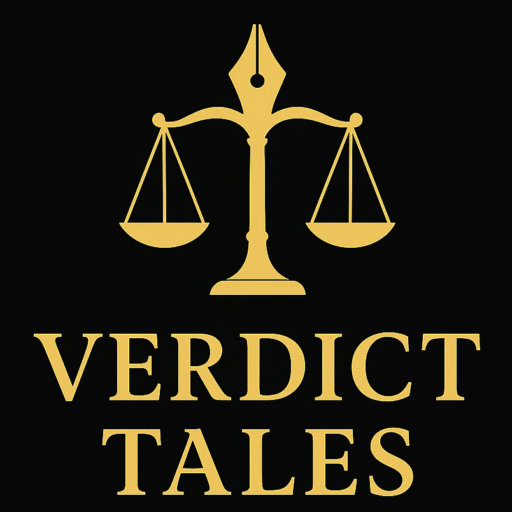The decision of the UK High Court on Assange v. USA addresses whether Julian Assange’s US extradition breaches his free expression rights. A riveting judicial fight exposes the conflict between journalistic liberty and national security. Now turn to this historic case.
Section: The Odyssey of a Whistleblower: Julian Assange
For seven years, a man trapped in the Ecuadorian Embassy sat in the middle of London, his life a worldwide spectacle viewed from all sides. The creator of WikiLeaks, Julian Assange, was not your typical fugitive. Some considered him a hero for revealing the sinister side of government secrets. To others, he was a traitor, compromising lives by revealing top-secret material. His narrative—a blend of bravery, controversy, and judicial drama—reached a turning point in March 2024 when the UK High Court rendered a decision that would influence press freedom globally.
It all started in 2006 when Assange founded WikiLeaks, a forum meant to give voice to whistleblowers. By 2009, his organization was toppling the pillars of world politics. Working with US Army intelligence analyst Chelsea Manning, Assange gathered and leaked a wealth of sensitive US documents—diplomatic cables, war reports, and rules of engagement. These disclosures revealed alleged war crimes, torture, and secret activities, sparking equal measures of indignation and appreciation. One video, depicting a US helicopter killing unarmed civilians in Baghdad, came to symbolize WikiLeaks’ mission to reveal the truth.
But truth was not without cost. The US government charged him with offenses that could land Assange in prison for up to 175 years, alleging he conspired with Manning to steal and reveal national defense secrets. They claimed his actions compromised lives by exposing the names of confidential sources. The judicial drama began in 2019 when the US sought his extradition from the UK, marking the start of a legal battle that would challenge national security, free speech, and international law.
Assange’s journey transcended mere documentation. It was deeply personal. First seeking refuge in the embassy, then held in a high-security jail, he avoided a Swedish extradition request for unrelated charges and faced allegations of a CIA plot to kidnap or assassinate him. Years of detention followed. His supporters saw a man persecuted for exposing the powerful; his detractors, a reckless provocateur. As the world watched, the UK High Court became the stage for a struggle transcending one man’s fate.
Section: The Legal Rollercoaster: Magistrates to High Court
The path to the High Court was long and meandering. The US extradition request was heard by District Judge Vanessa Baraitser of Westminster Magistrates’ Court in 2020. The US portrayed Assange as a criminal who endangered lives by revealing unedited names of informants. Assange’s defense argued he was a journalist protected by US First Amendment rights and the European Convention on Human Rights (ECHR) guaranteeing free speech. They contended the case was politically motivated, targeting Assange for exposing US misconduct.
Judge Baraitser stunned everyone with her January 2021 ruling. She rejected most of Assange’s claims, finding his conduct went beyond journalism and that the US accusations were not politically motivated. She also ruled that he actively sought secret information. On one point, however, she blocked extradition: Assange’s mental health. She concluded that harsh US prison conditions, including possible “special administrative measures,” could drive him to suicide, making extradition cruel.
The US appealed, offering assurances that Assange could serve any sentence in Australia and would not face harsh treatment. Under Lord Burnett’s leadership, the High Court overturned Baraitser’s ruling in December 2021, accepting US assurances. The case was referred to the UK Secretary of State, who approved extradition in June 2022. Assange’s team fought back, appealing under the Extradition Act 2003, arguing the order violated his human rights and ignored the political nature of the charges.
Justice Swift dismissed Assange’s appeal on paper in June 2023, finding his arguments misguided. Undeterred, Assange’s lawyers presented their case before Dame Victoria Sharp and Justice Johnson in February 2024 at a public hearing. They raised nine arguments, from the possibility of a death sentence to free speech violations. The world waited as the court pondered a question that could reshape global journalism: Can someone who exposes state secrets be extradited?
Section: The Conditional Victory of the High Court
The UK High Court’s 66-page ruling in Assange v. USA ([2024] EWHC 700) on March 26, 2024, offered Assange a glimmer of hope. While the court rejected most of his appeal grounds, it granted leave to appeal on three key issues, pending US assurances by April 16, 2024.
The Decision
The court allowed Assange to pursue an appeal on:
-
Article 10 ECHR: The court found an arguable case that Assange’s right to free expression might be violated if extradition denied him First Amendment protections due to his non-US citizenship.
-
Prejudice Due to Nationality (Section 81(b)): Remarks by figures like former CIA Director Mike Pompeo suggested Assange could face bias at trial if prosecutors argued he lacked First Amendment rights as a foreigner.
-
Death Penalty Risk: The court expressed concern that Assange might face capital charges (e.g., treason or espionage), citing calls for his execution by leaders like Donald Trump.
The court deferred its final ruling, giving the US until May 20, 2024, to provide assurances that:
-
Assange would have First Amendment protections.
-
His nationality would not bias his trial or sentencing.
-
He would enjoy the same First Amendment rights as US citizens.
-
He would not face the death penalty.
If the US fails to meet these conditions, Assange will be granted leave to appeal without further hearing. If assurances are given, a hearing on May 20, 2024, will determine next steps. The court dismissed other arguments, including claims of political persecution, unfair trial risks, and alleged CIA plots, finding no evidence to support them.
The Reasoning
The court balanced the cooperative nature of extradition with human rights protections:
-
Free Speech and Nationality: The court noted US prosecutor Gordon Kromberg’s suggestion that foreign nationals might lack First Amendment rights for leaks involving national defense. This raised concerns about Assange’s defense and sentencing. The court found no clear US law denying constitutional protections to non-citizens on US soil but deemed this a factual issue for appeal.
-
Death Penalty Risk: While current charges do not carry the death penalty, the court warned that additional charges (e.g., treason or espionage) could. Public statements by Trump amplified these concerns. The US assurance allowing a sentence transfer to Australia did not explicitly bar the death penalty.
-
Rejected Grounds: The court ruled the US-UK Extradition Treaty does not bar extradition for political offenses. It found no evidence of political motivation, citing prosecutor Kromberg’s sworn claims. Allegations of a CIA plot, based on a 2021 Yahoo News article, were deemed irrelevant to extradition.
The court emphasized that extradition is about international cooperation, not retrying cases. Yet, it insisted on safeguards to prevent “flagrant” human rights violations—a high bar partially met here.
Section: What We Learned from the Battle of Assange
The Assange v. USA ruling highlights the clash between national security and press freedom. Key takeaways:
-
Free Speech Isn’t Universal: The case reveals a chilling possibility—free speech protections may vary by nationality. If the US denies First Amendment rights to foreigners, journalists worldwide could face prosecution for exposing state secrets, chilling investigative reporting.
-
Extradition Must Respect Human Rights: The court’s demand for assurances underscores that no one should face unfair trials or disproportionate punishment, even in high-stakes cases.
-
Political Rhetoric Matters: Comments by Trump and Pompeo influenced the court’s concerns, showing how political rhetoric can shape legal outcomes.
-
Journalism on Trial: The case blurs the line between crime and journalism. While the court did not fully endorse Assange’s actions, it acknowledged that punishing publication risks criminalizing the press.
For policymakers and prosecutors, the lesson is clear: Charges must be evidence-based, precise, and free of political bias. For lawyers, it’s a call to scrutinize extradition requests for hidden risks. For the public, it’s a reminder of truth’s fragility in a world where power can silence dissent.
Closing: A Reflection on Justice
Julian Assange’s story is a mirror of our values—not just a legal case. Do we prize truth-tellers or prioritize security? The High Court’s ruling keeps the debate alive without resolving it. As Assange awaits his fate, the world watches, reminded that justice is about the courage to challenge power, not just the laws that govern it.
Assange dared to illuminate a world of secrets. Whether viewed as a criminal or a hero, his case forces us to ask: What price are we willing to pay for truth? The answer lies in balancing freedom and accountability—a balance still unsettled.



